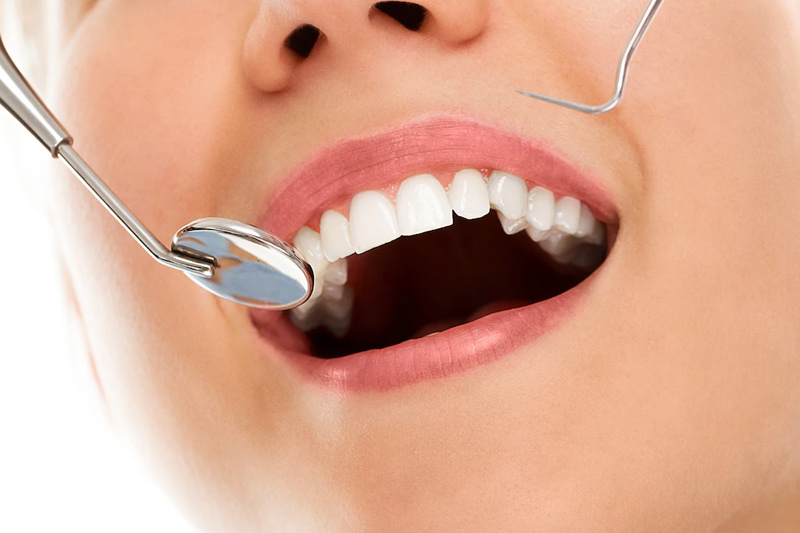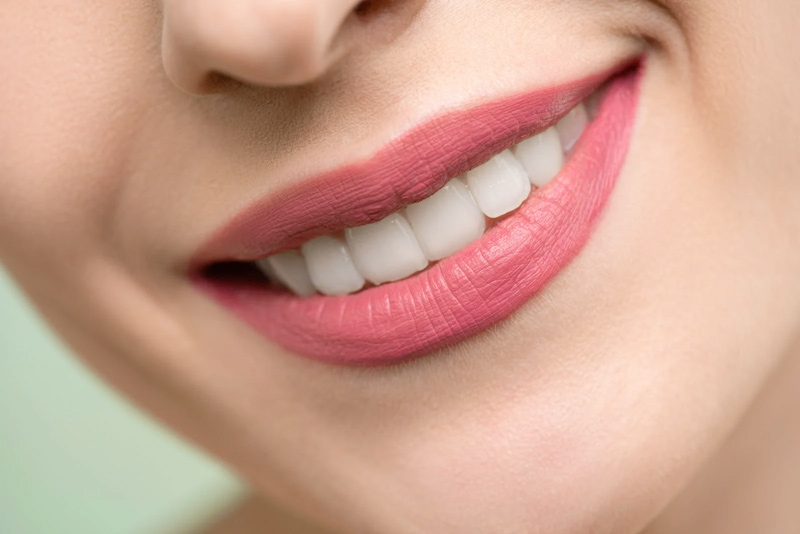PROSTHESES
CROWNS AND BRIDGES
When such a large part of the tooth is lost as a result of tooth decay, trauma, facture or any other reason, that tooth filling would not provide a satisfactory result, fixed dental treatment is indicated such as a crown or a bridge. They are made out of metal-ceramic which are better in the aspect of toughness or out of zirconia which are superior in the aspect of esthetics.
Crowns bond to the rest of the tooth making it stronger and giving it shape and color of a natural tooth. In that way they improve the tooth with their color, shape and mechanical features.
As oppose to a tooth filling, crowns and bridges are made in a more compex way and it requires several visits to the dental office:
- visit- the longest and requires patience ant it represents:
- preparation of the tooth- removal of the excess tooth and making place for the future crown,
- making the impression- making a module for the future fixed treatment,
- preparation of the provisional crown / bridge- if there is a need, in most cases for esthetic reasons, it is possible to make a provisional treatment while the permanent is being made.
- visit- when the permanent treatment is made in the dental technique, it must be tried on in the dental office after 2-3 days,
- visit- after another 2-3 days, as the both patient and dentist are satisfied with the fixed treatment, it must be permanently cemented onto the teeth.

DENTURES
When there are too many teeth missing from the arch, that it is simply impossible to make a bridge, the mobile treatment or denture is indicated, which patent puts in and out on his own. When all of the teeth are missing, a complete denture is made, and when a few of the teeth still remain in the arch, a partial denture is indicated. The stability of the partial denture can be improved by connecting it to the remaining teeth with attachments or to implants.
That is how a combined denture is made. It has several advantages:
- Smaller surface of the denture- more pleasant and easier to adjust to,
- Stability is better- speaking and mastication is easier,
- The bond between the denture and the crowns is hidden- better esthetics,
- Forces of mastication are equally distributed- the load is reduced, by which both the denture and the remaining teeth last longer.

VENEER
In order to conserve the hard tooth tissue, esthetics problems of the frontal teeth can be solved with dental veneers. The only surfaces that need to be prepared are frontal surfaces of the teeth in worst cases.
Veneers can be indicated in several cases:
- Change of tooth color,
- Change of the shape of the tooth- a small fracture
- An inadequate position of the teeth- spaced ore drawn teeth.
In the aspect of accessibility and time needed to make, advantage is given to direct or composite Veneers, but because they change their color over time like every other filling, they don’t last very long. In comparison, ceramic or indirect veneers, like all other fixed treatments last much longer but the procedure requires several visits to the dental office.


